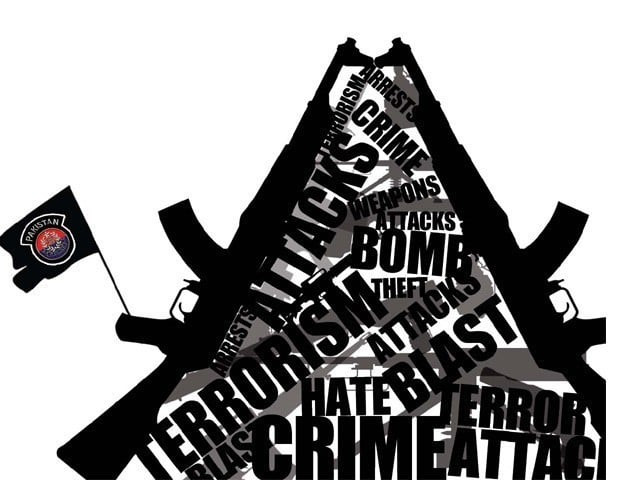Combating terrorism: Govt moves to ramp up terror prosecution
Cabinet approves proposal for Fair Trial Act that would allow for collection of electronic evidence.

After years of rhetoric, the government has finally decided to tackle terrorism in one way it is best equipped to – through legislation.
The federal Cabinet on Wednesday approved the proposal for a new bill, the Fair Trial Act of 2012, to allow for collection, and admission into court, of evidence collected through state-of-the-art surveillance techniques by security and intelligence agencies.
The act, if passed by both, the National Assembly and the Senate, will also regulate the powers of intelligence and law enforcement agencies to ensure fair trial of all accused.
The act will also provide executive and judicial oversight of law enforcement agencies, when they conduct investigations.
Widespread misuse of authority has been a common issue when intelligence agencies nab a person for investigation.
It is not clear, however, if the legislation would be implementable since there is little or no civilian oversight over the conduct of intelligence agencies.
“The proposed bill provides for collecting evidence by means of modern techniques and devices to prevent and effectively deal with scheduled offences, to regulate the powers of the law enforcement and intelligence agencies, and to prevent law enforcement and intelligence agencies from using their powers arbitrarily,” an official statement issued after the Cabinet meeting said.
“It will also provide for admissibility and the use of material collected during any investigation, under the present law, in judicial proceedings and all other legal proceedings or processes, to ensure a fair trial,” the statement added.
Anti-Terrorism (Amendment) Bill 2012
The Cabinet also approved the Anti-Terrorism (Amendment) Bill 2012 that deals with financing terrorism, and aims to remove shortcomings in the provisions of the Anti-terrorism Act of 1997.
The new bill strengthens the provisions of the 1997 Act, covering all aspects of financing terrorism in light of international standards, including provisions on freezing, seizing and the forfeiture of assets and properties of those involved in financing terrorism.
Power theft bill
A third bill, the Offenses and Penalties relating to Electricity Amendments in the PPC, CrPC and Electricity Act 1910 was also approved by the Cabinet.
The ministry of water and power has repeatedly claimed that it is faced with a situation whereby the recoveries carried out by power distribution companies from the consumers are insufficient and inadequate to meet the cost of generated electricity. As a result, the federal government has to provide subsidies, especially to those distribution companies which suffer from rampant leakages, pilferages and theft.
The bill enumerates offences of dishonest abstraction, illegal interference or tampering with transmission and distribution power systems.
It can lead to imprisonment of up to three years and a fine of up to Rs10 million for transmission offences, and two years and Rs3 million for distribution offences.
Similarly, offences against improper use, interference or tampering with electric metres by domestic, industrial, commercial and agricultural consumers have been included.
Minority seats in National Assembly
The Cabinet also discussed the proposed legislation on enhancing reserved seats of minorities in the national and provincial assemblies, in view of a report complied by a committee on the subject. Some members gave new proposals and it was decided that the committee working on the issue would present its final report to the Cabinet after considering new recommendations.
Published in The Express Tribune, September 6th, 2012.



















COMMENTS
Comments are moderated and generally will be posted if they are on-topic and not abusive.
For more information, please see our Comments FAQ